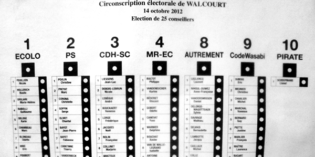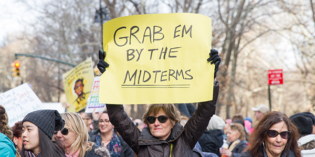Tag: André Blais

Covid-19 lockdowns: early evidence suggests political support and trust in democracy has increased
Making use of cross-country European survey data that was fielded both before and after Covid-19 lockdowns were implemented, André Blais, Damien Bol, Marco Giani and Peter Loewen find that support for the incumbent leader, support for government in general, and trust in democracy have all increased in the short term.

Voters dislike disproportionality in electoral systems – even when it benefits the party they support
Taking advantage of a uniquely designed survey experiment, Carolina Plescia, André Blais and John Högström investigate the effect of proportionality on voter support for voting rules in four countries, namely Austria, the UK, Ireland and Sweden. They find that voters for both small and large parties dislike disproportionality in electoral systems, with little cross-country variation.

Choosing winning candidates in proportional systems does not increase voter satisfaction
Does expressing a preference for winning candidates as well as voting for a political party improve electoral satisfaction? Damien Bol and his colleagues test whether flexible-list PR improves voter satisfaction using the case of Belgium, and finds that – contrary to expectation – voting for winning candidates does not increase voters’ satisfaction with electoral outcomes compared with ‘party-list’ voters.

Has the gender gap in voter turnout really disappeared?
While the gender gap in electoral representation is widely acknowledged, it is often assumed that there is no equivalent underrepresentation of women in voter turnout. However, Filip Kostelka, André Blais and Elisabeth Gidengil find that, while women vote in equal numbers in first-order national elections, less high-profile local and supranational elections still see a disparity in turnout between men and women, which has implications for equal participation.

Good news: fielding women candidates doesn’t put parties at a disadvantage in elections
We know women are more likely to be elected under proportional representation, but it hasn’t been clear which aspects of PR benefit them. Sona N. Golder, Laura B. Stephenson, Karine van der Straeten, André Blais, Damien Bol, Philipp Harfst and Jean-François Laslier designed an experiment in which people could cast (fake) votes for (real) European […]

Voters who support under-represented parties are more likely to express dissatisfaction with the political system
How does over and under-representation of political parties affect voter satisfaction with democracy? André Blais, Alexandre Morin-Chassé, and Shane P. Singh share research which shows that voters who support parties such as UKIP and the Green Party are less likely to express satisfaction with the political system as a whole, however voters who see their […]


 Democratic Audit's core funding is provided by the Joseph Rowntree Charitable Trust. Additional funding is provided by the London School of Economics.
Democratic Audit's core funding is provided by the Joseph Rowntree Charitable Trust. Additional funding is provided by the London School of Economics.